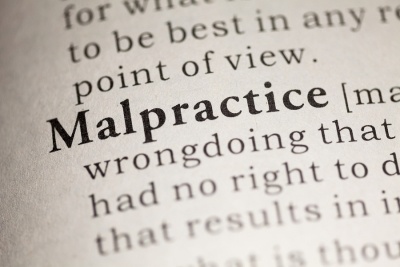A Brief Look at Common Malpractice Claims

Virtually any type of professional faces the potential risk of a malpractice claim:

- Healthcare workers – Medical malpractice claims are perhaps the most well-known type of malpractice claim. Malpractice lawyers also frequently represent healthcare providers who have been accused of failing to obtain consent, negligent supervision, lack of technical skill, and lack of the necessary credentials. Other types of claims include medication errors, diagnostic errors, delayed diagnosis, surgery errors, or post-surgical complications such as infections.
- Accountants – Accountants have a duty to exercise professional care. This duty extends to clients, but under certain circumstances, such as financial-statement audits, may also extend to third parties. Depending on which state’s law applies, an auditor may owe a duty of reasonable care to those third parties that it knows will be relying on its audit. Or an auditor may owe a duty to a class of individuals or entities that the auditor knew or should have known would rely on its audit report. In a few states, an auditor may be liable to any party whom the auditor
could reasonably foresee relying on the audit report. [1] - Engineers and Architects – In addition to negligent design claims against engineers and architects, plaintiffs may also bring suit against construction managers and other contractors. For example, a homeowner may file suit against a contractor when her neighbor’s renovations cause damage to her property.
- Lawyers – Attorneys are not immune from negligence suits. According to the American Bar Association, the most common claims against lawyers involve failing to know or apply
the law, failing to plan a sound legal strategy, inadequately investigating the facts of a case, and failure to file documents or calendar important dates. Even lawyers need an attorney with experience in handling malpractice claims to represent them in civil actions or before bar counsel.
Blog disclaimer: This site is for informational purposes only – it is not legal advice. Nothing on this site establishes an attorney-client relationship with any reader, nor is it guaranteed to be current, accurate, or complete. If you need legal advice, consult an attorney.
[1] Stanley Sterna, “Defending Third-Party Audit Claims,” Journal of Accountancy, May 1, 2013.


